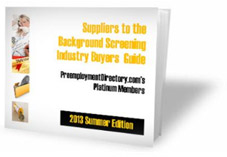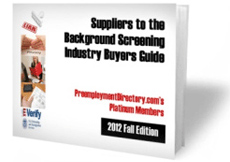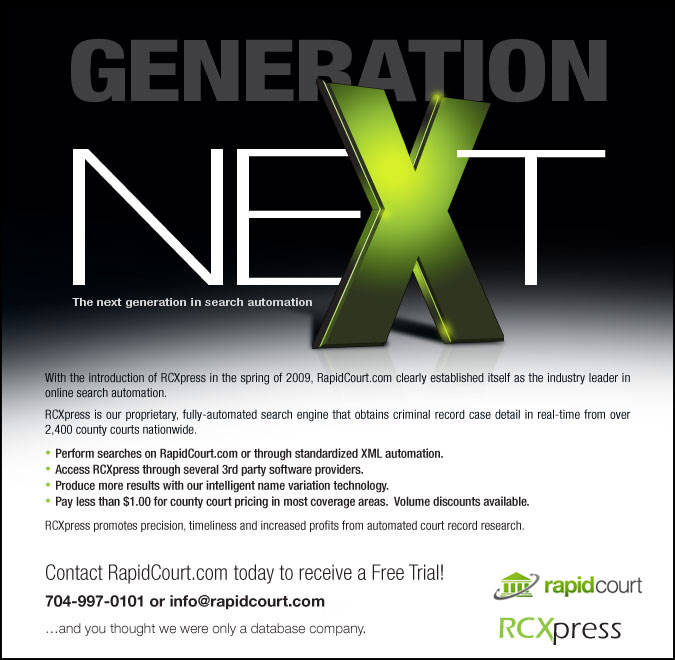|
||
|
Cozy Could Make Renting Much More Comfortable for Both Landlords and Tenants The service, Cozy, is looking to reboot the way that renters and landlords interact. Renters create a profile in Cozy containing information about themselves, including references and job information (verified through LinkedIn) that can then be quickly and securely submitted to potential landlords who are looking for tenants. Once that renter finds a place (or gives up trying) he or she can retract those applications, leaving no trace behind and providing much greater security than a paper or traditional online application could ever afford. Landlords, too, create profiles and list their properties, including photos and lease payment details. They can accept applications and, once a tenant is identified, process payments digitally. Cozy uses ACH direct debit payments, enabling a renter to push money directly to the landlord's account from their own. The service even aggregates multiple payments from roommates and, should one person be lagging behind, send an email to all the happy (or unhappy) cohorts to let them know exactly who is holding up the process. It costs landlords $9 per month for every unit they list on Cozy.Read more
|
| LEGAL ISSUES |
Injured Officer Sues Alexandria Yellow Cab
An officer who was seriously injured when a taxi driver allegedly shot him in the head is suing the Alexandria Yellow Cab company, alleging negligent hiring. Kashif Bashir allegedly shot Alexandria police Officer Peter Laboy in the head as Laboy attempted a routine stop of Bashir's taxi. Bashir was charged with aggravated malicious wounding, attempted murder of a law enforcement officer and two counts of using a weapon in the commission of a felony. Bashir, who had been working for Alexandria Yellow Cab for four years, was wanted for acting in a "menacing and threatening manner," according to the lawsuit. A gun and several cans of beer - some empty and some full - were found in Bashir's cab after his arrest. The lawsuit alleges Alexandria Yellow Cab did not perform any type of "adequate or effective background screening prior to hiring Bashir" and other drivers, failing in ensuring public safety. Laboy is suing for $10 million total in damages for negligent hiring and negligent entrustment. Prior to the incident, Bashir had been convicted or charged with more than a dozen violations during the past few years.
![]()
Washington Passes Social Media Privacy Law
For businesses
that use social media to vet job applicants or to monitor employees,
change is afoot. The Governor has signed into law a bill that
makes it illegal for any employer in Washington to require an
employee or applicant to provide access to his or her social
media account. This law covers any employer with one or more
employees, and it goes into effect July 28, 2013. The law prohibits
employers from requesting, requiring, or coercing a current
employee or job applicant into doing any of the following: Giving
the employer the login information to a private social media
account; "Friending" a manager or other third person so the
employer can view the individual's account; Requiring that the
employee change his or her privacy settings to make the account
publicly available; and Logging into the account in the employer's
presence so as to enable the employer to view the content. The
law expressly prohibits employers from taking any "adverse action"
against an employee for refusing to engage in any of these prohibited
acts. This means firing, refusing to hire, or disciplining the
employee or applicant, or threatening to do so. Eleven states
have now enacted laws of this nature, and similar legislation
is being considered in over thirty more.
Read more
![]()
NH Senate Approves Social Media Protections
New Hampshire's Senate voted unanimously to prohibit bosses from requiring employees or job applicants to disclose user names or passwords to personal Facebook, Twitter or other social media or email accounts. But the Republican-controlled chamber voted 13-11 along party lines to add an amendment on union contracts that could spell trouble when the bill goes back to the House to consider changes to the bill. The bill would apply the ban to the workers' personal accounts unrelated to the employer's business. The measure would not prohibit an employer from obtaining information in the public domain or prevent the employer from investigating whether the employee is complying with securities or financial laws based on the person's personal website used for business purposes. Senate Democratic Leader Sylvia Larsen of Concord objected the added provision could doom the social media provisions. Allowing employers access to social media accounts also gives them access to others linked to the account, which could infringe on their privacy.
![]()
| Welcome
to the U.S. Legal Challenge Question! |
![]()
As the background screening industry continues to get more competitive the firms that will ultimately succeed will be those that create competitive advantage through their people by offering continuous learning opportunities to heightened their knowledge and capabilities. We believe that having employees that are very knowledgeable about the legal landscape of background screening is essential to continued success.
We are grateful to Pam Devata, Seyfarth Shaw LLP for providing the expertise for this valuable endeavor. For information regarding the answers to the Legal Challenge Questions, please contact Pamela Devata at Seyfarth Shaw LLP at pdevata@seyfarth.com or 312-460-5000 or visit www.seyfarth.com.
Please choose
your answer by clicking on it:
|
![]()
| LEGAL ISSUES - continued |
The Flurry of New Employment Laws Regulating the Use of Criminal Records Continues with Expanded Restrictions in Indiana, North Carolina, Texas, and Buffalo, New York
The public policy interests supporting employment-related protections for ex-offenders, including encouraging ex-offenders to reenter the workforce, are detailed in the updated EEOC Enforcement Guidance released in April 2012. And, while states like California, Massachusetts, New York and Wisconsin already extend such protections to ex-offenders, employers need to be mindful of additional new state and local laws that seek to promote these same public policy interests by restricting inquiries into and the use of criminal records for employment purposes. On the reverse side of this issue, recognizing that employers have potential tort exposure for hiring ex-offenders, some state legislatures have taken steps to protect employers from tort claims like negligent hiring and/or retention. One example is a new law in Texas. This legislation is intended to further the same public policy interests, but takes a different and more sensible approach: curbing lawsuits against employers rather than denying employers access to potentially salient information about a candidate's criminal past.
![]()
Seattle Restricts Use Of Criminal History In Hiring
The Seattle
City Council unanimously passed the "Job Assistance Bill" restricting
employer use of criminal history background checks in hiring.
The ordinance was enacted in an effort to ease return to the workforce
of individuals who have been arrested, convicted, or charged with
a crime. The new ordinance applies to employers of all sizes,
as few as one employee. It also covers job placement, temporary
and staffing agencies. Unlike the federal FCRA or comparable state
laws, the ordinance also governs use of information obtained directly
by the employer, not through outside background check companies.
Employers may not automatically exclude all individuals with an
arrest or conviction record for any job performed in whole or
substantial part (over 50%) within the City of Seattle. The law
restricts questions that can be asked about criminal background.
It requires the employer to establish a legitimate business reason
before denying an applicant a position based solely on that individual's
criminal conviction record or pending criminal charge. This law
emphasizes the rising importance of new, regional restrictions
on employer conduct.
Read
more
![]()
Nevada Becomes State #11 to Enact Social Media Password Protection
Legislation
Nevada has
joined the growing list of states that have enacted "social media
password protection" legislation that restricts employers' access
to applicants' and employees' personal social media accounts.
The full roster of states with such laws now includes: Arkansas;
California; Colorado; Illinois; Maryland; Michigan; Nevada; New
Mexico; Oregon; Utah; and Washington. The Nevada law goes into
effect on October 1, 2013. The Nevada law prohibits employers
only from requesting or requiring that applicants or employees
provide their user name, password, or other information needed
to gain access to a personal social media account, as well as
adverse employment action based upon a refusal to comply with
such a request. This prohibition is narrower than that seen in
many password protection laws which typically also prohibit employers
from "shoulder surfing," from compelling an employee or applicant
to accept a friend or connection request and/or from requiring
that an employee or applicant change privacy settings to permit
the employer access to his or her restricted, personal social
media account.
Read more
![]()
Credit Checks in Employment: Where Employers Stand After
Kaplan
The EEOC
and some state and local governments became concerned with employers'
use of credit checks following the 2008 economic crisis. Many
people found themselves out of work, negatively affecting credit
scores. Government officials worried that employers placed too
much emphasis on credit checks to screen out otherwise qualified
applicants. Their concern is that minority workers are more likely
to have poor credit. Employers' overreliance on credit scores
as a hiring criterion therefore could have a disparate impact
on minority applicants. Even when an employer has a policy that
applies to all applicants or workers, the policy may be the basis
for a claim of unlawful discrimination. Actionable discrimination
may be found if the policy disproportionally affects a protected
class of employees, and the employer cannot demonstrate a sufficiently
important business need for the policy. In EEOC v. Kaplan Higher
Education Corp., the EEOC alleged that Kaplan's use of credit
checks had a disparate impact on African American job applicants,
however the EEOC was unable to produce disparate impact evidence.
The court entered summary judgment in Kaplan's favor.
Read
more
![]()
Council 'Bans the Box' to Help Ex-cons Land Jobs
The City of Buffalo has voted to "ban the box", making it illegal for any employer to ask job seekers on their applications if they have ever been convicted of a crime. The measure will now be submitted to the mayor for his signature, but the strong support in Council Chambers points to a veto-proof majority and the likelihood it will become law. The measure recognizes that stopping employers from asking job applicants to check a box on job applications if they have a criminal record allows those who have served time or been convicted of minor offenses to at least get an interview. Having to check the box is one reason ex-cons have higher unemployment rates. Opponents argued that asking the question on applications allows employers to know about a criminal background from the beginning and the measure serves as a slap in the face to law-abiding citizens applying for jobs. The Council president stressed that any employer can ask any question about criminal records during an interview, but the new measure at least allows an applicant to state their case. Some exemptions - such as for those applying to be police officers, teachers or childcare workers - are included in the new law.
![]()
![]()
| ALCOHOL & DRUG TESTING |
New Arizona Law Requires Drug Testing of Taxi and Limousine Drivers
The governor
of Arizona signed a law on May 7, 2013 requiring drug testing
and criminal background checks for all drivers of livery vehicles,
taxis and limousines. The law requires those who own or lease
such vehicles to conduct pre-employment drug testing and criminal
background checks on applicants for such driving positions. After
hire, drivers must be subjected to annual random drug testing.
Random testing means that names are selected at random and that
everyone in the selection pool has an equal chance of being selected
each time a selection is made. When drug testing is truly random,
there is no way to guarantee that an employee's name will be selected
at any time, let alone once a year. More importantly, the law
does not require employers to refuse to hire applicants who test
positive, and does not require employers to fire those drivers
who test positive on their annual drug tests, although the expectation
appears to be that individuals who test positive should not be
permitted to drive. Employers must make criminal background records
and drug test results available for inspection by the Arizona
Department of Weights and Measures.
Read more
![]()
One
Site! Many Suppliers! |
Get Your Copy of the Suppliers Buyers Guide
Looking for the Top Suppliers in the Industry? Need to find a new Supplier?
Visit our VENDOR SHOWCASE which features suppliers to the Background Screening Industry.
Suppliers
to the Background Screening industry Guide Now Available!
Click
here or on image to get a copy
Contact Barry Nixon at wbnixon@aol.com for information on getting your firm listed in the
![]()
| ANNOUNCEMENTS |
 FRS Announces Revolutionary
New Preferred Partner Program
FRS Announces Revolutionary
New Preferred Partner Program
Most software companies are interested in one thing and one thing only - selling you their product, of course. Once they make the sale and have added you to their client list, they frequently forget about you. Hopefully, they provide good customer service and adequate technical support but that's about as far as it goes. What if…the vendor that sold you their product wanted to help you win new business and achieve greater levels of success? What if… they wanted to assist you in building revenue and market share? What if… the vendor actually put their money where their mouth was and invested in the marketing and promotion of your company to qualified prospects? Could there really be such a vendor or are you just dreaming? If you're in the background screening business, the answer is a resounding "yes"!
FRS, the preeminent provider of background screening solutions for the last two decades, has broken the mold and shattered the status quo with a radical and innovative program designed to help its Preferred Partners close more sales and rack up additional revenue. The FRS Preferred Partner program was created to provide our clients with qualified leads, new sales and lasting partnerships with HR organizations in need of best-in-class Consumer Reporting Agencies (CRA).
![]()
| EMPLOYMENT OUTLOOK |
The Conference Board Leading Economic Index® for the U.S. Increases
The Conference Board Leading Economic Index® (LEI) for the U.S. increased 0.1 percent in May to 95.2 (2004 = 100), following a 0.8 percent increase in April, and a 0.3 percent decline in March.
Says Ataman Ozyildirim, economist at The Conference Board: "Despite month-to-month volatility, the LEI's six-month growth rate remains steady, suggesting that conditions in the economy remain resilient. Widespread gains in the leading indicators over the last six months suggest there is some upside potential for economic activity in the second half of the year."
Says Ken Goldstein, economist at The Conference Board: "Growth will depend on continued improvement in the housing market and an easing of consumer and business caution which would allow overall consumption and investment to gain traction. Cutbacks in public spending programs and the drag from foreign trade remain headwinds."
![]()
STOP
STRUGGLING WITH WRITING AND PUBLISHING YOUR NEWSLETTER: |
We can help you have a high quality e-newsletter to help nurture your relationship with your clients and attract new clients. Our customized newsletter service will take over your newsletter task or create a new one for you. We can manage the creation of your newsletter for you.
We are constantly researching information to use for The Background Buzz and you can put our research to use for you. Using the information rich content from The Background Buzz (minus the ads and competitors information) we will create a custom newsletter for you.
Use your staff’s time to do more valuable work and save all the hassle of researching or writing articles, formatting and managing all the other ezine tasks with our customized ezine process.
Contact Barry Nixon at 949-770-5264 or at wbnixon@aol.com for more information.
![]()
Sponsored by:
Public
Record Update
By Mike Sankey, PRRN
| Resource for Driving Records |
About
NIC
NIC state affiliates provide a variety of online services
in 30 states. NIC is also the conduit for the Pre-Employment Screening
Program (PSP) provided by the Department of Transportation, Federal
Motor Carrier Safety Administration. PSP provides electronic access
to a driver's crash and inspection history from the FMCSA Motor
Carrier Management Information System (MCMIS).
See www.psp.fmcsa.dot.gov/Pages/default.aspx
.
| CA Trailer Bill Killed But New Bill Passed That Alters Public Records Act |
California Courts and Record Access
There was quite a bit of news and push back about the trailer bill that would have dramatically altered the fee structure for viewing and obtaining court records in California. The bill was killed by the legislature on June 14, 2013. However, another bill was added to the budget bill which was passed on the 14th. SB71 (or AB76) modifies wording in the California Public Records Act (CPRA)T.
Currently,
the CPRA states "...requires state and local agencies to make
public records available upon receipt of a request that reasonably
describes an identifiable record not otherwise exempt from disclosure,
upon the payment of fees to cover costs." SB71 modifies CPRA so
that state and local government are merely "encouraged"
to make the public records available as per CPRA. SB71 also makes
compliance with certain provisions of CPRA as "optional"
rather than required - meaning agencies can opt out. The provisions
deal with access public records, including court records.
According to published reports this is a budget
issue and the Department of Finance expects agencies who opt out
will save the state tens of millions of dollars. Another in-depth
article is available from the Courthouse News Service at www.courthousenews.com/2013/06/18/58616.htm
.
View SB71 or AB76 at www.leginfo.ca.gov/index.html .
The bill specifically alters Sections 6252 by adding 6252.8 which
in turn makes certain parts of the CPRA optional including provisions
in 6253.
View the section affected in the CPRA at:
www.leginfo.ca.gov/cgi-bin/displaycode?section=gov&group=06001-07000&file=6250-6270
The bill is expected to be signed by the Governor on or before June 30th, 2013
| How Do You Analyze Online Sites? |
Today everyone is trying to either save a buck or find an edge over their competition by finding new or lower cost online sites providing public records such as criminal records. When one is evaluating an online site, the typical questions often asked are "How much does it cost?" and "Is the data current?" But the questions that really need to be asked and answered are:
- Is 'x' a primary source or a secondary source?
- Is an online search of 'x' equivalent to an onsite search?
Sometimes
the word-of-mouth system is a good way to find verification of
a reliable online site. Sure, you can ask a colleague for a recommendation,
but you are not going to obtain a full scale analysis from a post
on a social media site or list serve. And if your business depends
on knowing the depth and validity of the search results when using
a certain online site, you better do more than just get a referral.
The resulting data is much too valuable. Firms and individuals
who have taken the time to analyze the data on an online site
as well as determine the rate of return for the site using certain
online systems are not going to give their analysis away freely.
So how do you analyze online sites?
For more information contact Michael Sankey at mike@brbpublications.com or visit www.brbpublications.com/updates.aspx
![]()
![]()
| INSIDE WASHINGTON |
 Kevin Coy is a Partner in the Washington DC office of Arnall
Golden Gregory LLP. Kevin advises background screening
companies and other clients on a wide range of privacy and consumer
regulatory issues, including Fair Credit Reporting Act, Gramm
Leach Bliley Act, Drivers' Privacy Protection Act, and Dodd Frank
Act compliance issues, as well as data breach matters. Kevin also
represents clients with matters before the Federal Trade Commission,
the Consumer Financial Protection Bureau, and other consumer protection
agencies.
Kevin Coy is a Partner in the Washington DC office of Arnall
Golden Gregory LLP. Kevin advises background screening
companies and other clients on a wide range of privacy and consumer
regulatory issues, including Fair Credit Reporting Act, Gramm
Leach Bliley Act, Drivers' Privacy Protection Act, and Dodd Frank
Act compliance issues, as well as data breach matters. Kevin also
represents clients with matters before the Federal Trade Commission,
the Consumer Financial Protection Bureau, and other consumer protection
agencies.
Kevin can be contacted at Kevin.Coy@agg.com or 202-677-4034.
THE WASHINGTON REPORT - June 2013
On The Hill
Background screening activity continues on Capitol Hill, including immigration-reform-related initiatives. Progress continues to be slow, however, so this month's Washington Report focuses on the Equal Employment Opportunity Commission (EEOC), which has been a source of considerable activity since last month's Report.
At the EEOC
Interest on Capitol Hill in the EEOC's Enforcement Guidance likely will be further piqued by the EEOC's June 11 th announcement that the Commission has brought two suits alleging that employers BMW and Dollar General, respectively, have violated Title VII of the Civil Rights Act as a result of the manner in which they have conducted criminal background checks. In both cases the EEOC alleges that the employers' practices have had a disparate impact on African Americans.
![]()
| IMMIGRATION & E-VERIFY |
E-verify is Supposed to Stop Undocumented Employment. It Could Also Harm Legal Workers.
Almost everyone expects mandatory electronic employment verification to be part of any immigration reform law that reaches President Obama's desk. But critics say the system could create headaches for hundreds of thousands of Americans who do have authorization to work in the United States. Under the current rules, if E-Verify says you're not authorized to work, you have eight days to visit the appropriate government agency and begin an appeal. If you're not able to go in time, or you can't convince the agency that a mistake was made, your employer is supposed to fire you.
A study using 2009 data found that 0.3 percent of applicants suffered initial rejections that were subsequently corrected, allowing the employee to work. But another 2.3 percent of workers got rejections that were never reversed. And while 0.3 percent and 2.3 percent may sound like small numbers, in a nation of 300 million people, that translates to hundreds of thousands of people."The Department of Homeland Security has admitted at least in briefings to Hill staff that the error rate will go up when the number of people added to the system goes up." However also added that "If you think that the desire to identify people who work is an important societal value, you have to understand that that's going to have some incidental adverse cost."
![]()
12 Tips to Prepare for Mandatory E-Verify
With the
possibility of E-Verify becoming mandatory for all employers,
it's important that employers take proactive measures now to be
compliant with the immigration laws. Consider the following 12
tips for better E-Verify and Form I-9 compliance: Display the
"Notice of Participation" and the "Right to Work" Posters; Do
not use E-Verify before the employee has accepted your employment
offer or before Sections 1 and 2 of Form I-9 have been completed;
Create the E-Verify Case no later than 3 days after hire; If an
employee provides an Employment Authorization Document (EAD) from
DACA approval, the employer must document the EAD and its validity
date on Form I-9; Employers must provide notice of the TNC to
the employee; If an employee is re-hired within three years, the
employer may use the re-hired employee's existing Form I-9 and
E-Verify record on file; Employers who enroll in E-Verify must
use the program consistently; You must re-verify employment eligibility;
If employers acquire employees through non-traditional hiring
methods, the employer should consult with experienced immigration
counsel; Close-out your E-Verify case as soon as you receive a
Final Verification Result; Avoid the "over-document" trap of E-Verify
Photo Matching; and Ensure all sections of Form I-9 are fully
completed.
Read more
![]()
![]()
Dangerous
I-9, E-Verify Mistakes to Avoid
An increasing number of government worksite compliance
audits and stricter E‐Verify laws and regulations have made
employment eligibility immigration compliance a critical function
for HR departments across the U.S. Completing a Form I‐9
Employment Eligibility Verification for each employee enables
employers to document that they have met their obligations for
verifying the identity and work authorization of their employees.
Studies have found that a typical organization will often have
errors on more than half of their I‐9 forms. This can lead
to steep penalties, the revocation of a business license, debarment
for federal contractors, and discrimination and other damage claims
from applicants.
Five of the most common and dangerous mistakes that arise when using I-9 forms and E-Verify include:
Denying you have an I-9 problem; Waiting for ICE to Show Up; Treating Employees Differently; Improperly Retaining I-9 Forms; and Not Treating E-Verify Seriously. Some E-Verify best practices include: Centralizing operational control of the E-Verify chain; Understanding the nuances between I-9 and E-Verify requirements; Tracking state law, etc.
![]()
| BACKGROUND CHECKIING NEWS |
Criminal Records in the Digital Age: A Review of Current Practices and Recommendations for Reform in Texas
In today's system of widespread and open access to criminal history records - through commercial vendors and government repositories - it is almost impossible for an individual to overcome a criminal history. Extending far beyond any judicially imposed punishment, many additional consequences flow "collaterally" from a person's criminal history, creating lifelong barriers to housing, employment, and other critical resources. These negative consequences can persist regardless of the offense's severity or whether an arrest is ever prosecuted. A review of Texas' largest urban counties illustrates the wide reach of collateral consequences and the harm inflicted.
"Smart on Crime" reentry reforms have tended to focus on problems arising after criminal records are already publicly available. This is too late.
More than 65 million adults nationwide have a criminal history; the numbers in Texas are equally alarming, with an estimated 4.7 million adults possessing a criminal record. In Texas alone, law enforcement makes more than 1 million new arrests annually.
With the rise of the Internet and the emergence of electronic databases, more than 40 million criminal background checks are performed annually for non-criminal justice purposes. But despite the technological advances that make criminal records so easy and cheap to access, little oversight exists to ensure that the information being reported is accurate and legally compliant. Equally problematic is that efforts to minimize collateral consequences by limiting access to the criminal records are undermined by the absence of uniform statewide release procedures.
Widespread access to criminal records has serious long-term societal implications:
The risk of recidivism and danger to public safety are the most common concerns voiced by those advocating for increased access to criminal records, but such fears are overstated. Few, if any, contend that criminal history information is never a relevant factor to be considered. Problems arise, however, when policies and practices allow searches to include any past criminal involvement or law enforcement contact, regardless of offense, circumstance, and time passed. Restricting all opportunity for those living with a criminal record does not enhance public safety.
![]()
| REFERENCE CHECKIING |
An Employer's Guide To Reference Checks: Preliminary Observations
By Barry Hartstein and Corinn Jackson, Littler Mendelson, P.C.
Employers today are faced with a hiring conundrum. Employers desire as much information as possible
about a candidate in order to make a well-informed hiring decision. Those very same employers, however, are frequently wary about releasing information about a former employee to a prospective employer based on concerns of potential claims from the former employee, including defamation, discrimination, or retaliation from that former employee. In the search for talent, employers are engaging in increased due diligence, including background checks regarding a candidate's education and work history, as well as other screening devices, such as drug testing and inquiries regarding an applicant's criminal history and reference checks. The hiring process has become a legal maze and, at each step of the process, employers must take care to comply with continually changing legal requirements. Just as challenging are the issues faced by employers when dealing with former employees. Former employees frequently desire references to set them apart from large pools of applicants as they seek new employment. However, employees who lose jobs due to performance problems or misconduct may raise concerns about negative information being shared with prospective employers.
This wide array of hiring-related issues demonstrates that employers must be careful in every step of the
hiring process. The objective of this introductory report, and future reports that will provide greater detail on the issues discussed below, is to provide an overview of some of the legal issues that arise in the hiring process, particularly dealing with reference checks.
![]()
![]()
| AUSTRALIA |
A
Value-add Service? Background Checks in the Hands of Job-seekers
Organisations are now providing tools to both employees and recruiters
to ensure more informed background checks are being carried out.
Two U.S. companies - eKnowID and Acertiv - are taking different
approaches to ensuring the validity and usefulness of background
checks and CVs. Through eKnowID, candidates can obtain background
checks on themselves, giving them foresight into what a prospective
employer could obtain. In contrast, Acertiv's service allows job
seekers to add validity to their CV, by allowing job seekers to
upload documents to support their claims, such as licenses, degrees
or other qualifications. For employers, Acertiv allows them to
skip the validation process and increase their faith in the reliability
of a candidate's claims. Greg Newton, general manager an Australian
organization offering a similar service, expresses skepticism
as to the uptake of this approach in Australia. He suggests these
checks can create some of their own problems such as documents
dating too quickly and fraudulent documents being too easy to
obtain.
Read more
| CANADA |
Mere Smell of Marijuana was not Enough: Employee was Entitled to Refuse Drug Test, Says Court
An employee
was entitled to refuse to submit to a reasonable-suspicion drug
test where a supervisor smelled marijuana in the employee's truck
but had no other evidence of drug use or impairment, a Nova Scotia
judge has held. The employee refused, saying "it is none of your
business what I do when I am not here", and said that he was a
recreational user of marijuana and that the test would be positive
anyway. The employee was referred to a Substance Abuse Professional
but refused to answer questions about his off-duty drug use. The
City fired the employee for his "lack of cooperation and direct
violation of the HRM Substance Abuse Prevention Policy." The employee
grieved the termination, and an arbitrator reinstated him. The
City asked the court to overturn the arbitrator's decision. The
court noted that although the City had a legal obligation to protect
employees' safety under OSHA, the arbitrator reasonably concluded
that the evidence suggesting that the employee had used or been
impaired by drugs on the job was very weak. In short, the fact
that the City had "safety concerns" about the employee did not
permit the City to dismiss him where the City did not have just
cause.
Read more
![]()
Supreme Court Protects Workers' Privacy Rights
The Supreme Court has ruled that companies cannot institute mandatory
random alcohol testing of employees. "Random alcohol testing is
a humiliating invasion of an individual's privacy that has no
proven impact on workplace safety," said Dave Coles, president
of the Communications, Energy and Paper Workers Union of Canada.
In 2006, Irving Pulp and Paper Limited in Saint John, N.B., unilaterally
adopted a policy of mandatory random alcohol testing for employees
in safety sensitive positions. CEP Local 30 filed a grievance
challenging the policy after a worker was chosen randomly by a
computer program to take a breathalyzer test. The test showed
a blood alcohol level of zero but the worker said the test was
humiliating and unfair. "Our union's long-standing position is
that the best way to resolve social problems such as alcohol or
drug abuse is to address the root cause of the problem", said
Coles. "Rather than attack the victim, Corporate Canada needs
to do a better job in offering employee assistance programs, drug
education and health promotion programs."
| EUROPE |
New EU Data Protection Law: Time to Start Preparing
If you use or collect personal data, you should be aware of three
points - the new EU law is coming, it will affect your business
and it could well involve significant costs. At present, UK data
protection obligations are primarily governed by the Data Protection
Act 1998 (DPA), which implements an EU Directive. The European
Commission's proposals for reform are the subject of fierce debate
and may still change. However, if they come into force as they
stand, the implications are likely to include: Even more problems
with consent; Significantly more red tape; New requirements for
portability and deletion of data; Data processors will have to
comply; and, Significantly higher fines. The proposal needs to
be approved by both the European Parliament and EU Member States.
It had been hoped that agreement could be reached by June of this
year, but that now seems unlikely. However, there will be pressure
to adopt the proposal by 2014, when the European Parliament and
the European Commission are due for re-appointment. Make sure
that budgets and planned financial forecasts for 2014-2016 include
provision for compliance with the new law (including the appointment
of "data protection officers").
Read more
| MALAYSIA |
Expect More Spam: No Data Privacy for Malaysians
Yet Despite 2010 Law
No date has been set for the enforcement of the Personal
Data Protection Act 2010. "It will be enforced as soon as possible,"
said Communication and Multimedia Minister Datuk Seri Ahmad Shabery
Cheek, though he declined to be more specific as to whether it
will be in force by the end of the year. Malaysian Communications
and Multimedia Commission (MCMC) Chairman Datuk Mohamed Sharil
Mohamed Tarmizi noted that as data crosses all industries, "there
will be a lot of consultation, which we would have to go through
those first, as the regulator in each sector has its own data
protection requirement." The act plays a crucial role to safeguard
the interest of individuals and make it illegal for corporate
entities or individuals to sell personal information or allow
third party the use of data. Singapore has a similar Act that
came into force in 2013. On the issue of the possibility of regulating
local online portals as done in Singapore, Ahmad Shabery said
that MCMC is studying the issue. "There is a limit, even for countries
that propagate freedom of expression," said Ahmad Shabery.
| MEXICO |
IFAI Shows Teeth with €1m Fine on Bank
The Mexican
data protection authority, Instituto Federal de Acceso a la Información
y Protección de Datos (IFAI) has imposed a fine on Banamex,
the Mexican division of Citibank, of 16,155,000 MXN, approximately
€1m or $US 1.3m. A data subject had sent a letter requesting
Banamex to cease processing his/her personal data; however the
company failed to comply. Following this, the Director General
of Substantiation and Sanction wrote a letter to Banamex following
a complaint from the data subject; however the company did not
comply within the 10 days accorded to them. The IFAI further announced
fines of approximately €130,000 ($US 170,300) against Mexican
bank Caja Popular Cristo Rey and approximately €76,300 ($US
100,000) against fitness club Sport City. There is an opportunity
for the companies to appeal the fines. The increase in enforcement
follows Mexico's acceptance as the second formal participant of
the Asia-Pacific Economic Cooperation Cross Border Privacy Rules
System.
Read more
| MORROCCO |
Convention 108 Accession to Strengthen DPA's Powers
Morocco has adopted a bill approving the Council of Europe's (CoE) Convention 108 for the Protection of Individuals with regard to Automatic Processing of Personal Data. Once ratified, Morocco will become the second non-member country of the Council of Europe to accede to Convention 108, following Uruguay. "The Moroccan Data Protection Authority hopes that ratification will lead to amendments to the Moroccan [data protection] law," said Floriane Leclerc, representative for the Association of Francophone Data Protection Authorities (AFAPDP). "It needs to be modified to reinforce the authority's ability to enforce the law, [and] its financial and functional independence" Morocco was first invited to accede to Convention 108 on 30 January 2013. Convention 108 is the first legally binding instrument governing data protection, adopted by the CoE in 1981, establishing minimum data protection standards. The CoE is in the process of discussing proposals to modernise the Convention in light of the upcoming changes proposed by the draft EU Data Protection Regulation. Morocco's accession will bring the total number of countries party to the Convention to 47.
| UNITED KINGDOM |
London College Scam Gang Jailed
Three people who ran a fake college have been jailed for a total of 22 years, following an investigation. Sohail Akhtar, Noasheen Muhammed, and Waqar Bhatti, were all found guilty of conspiring to assist a breach of immigration law following a 3-month trial. During the trial, a jury heard how Bhatti set up Middlesex College in 2004 and then employed his friend Akhtar and Akhtar's sister Noasheen Muhammed to run operations. The college was offering courses in anything from fashion to law at undergraduate and post-graduate level. The college claimed that some of these courses were being run on behalf of genuine universities. The college ran only a small number of courses in basic English, and was largely a front for conning genuine students who wished to study in the UK and the authorities into granting visas for bogus students. At the time, the college claimed to have around a thousand students enrolled. Officers discovered that the trio had printed the signatures of genuine former members of staff on false qualification certificates and enrollment forms to add a cover of respectability. "This was an extremely long and complex investigation into three individuals who spent years conning both legitimate students and the authorities," said Rob Allen, London's criminal and financial investigation team.
![]()
HR e-briefing: Criminal Records Certificates - What's
Changing?
A number
of recent developments in relation to the Disclosure and Barring
Service (DBS) and criminal records checks will affect employers,
in particular the new update service being launched on 17 June.
The new subscription service is intended to make the vetting process
of job applicants faster and more straightforward for employers.
It will allow individuals, subject to them having subscribed to
the update service for an annual fee of £13, to keep their
DBS certificate up-to-date so they can take it with them when
they move jobs or roles. There is no fee for volunteers. Employers
will be able to carry out free, online, instant checks, known
as status checks, to see if any new information has come to light
since the certificate's issue, provided the same type and level
of check is required, the individual has subscribed to the update
service and has consented to the employer's check. To coincide
with the launch of the update service, the DBS will only issue
DBS certificates to the individual applicant, which will provide
applicants with the opportunity to review and challenge any of
the certificate's content before it is released to a registered
body.
Read more
| ADVERTISERS IN THIS EDITION |

![]()
| NEW PLATINUM MEMBERS |

![]()
| |
|
Visit the Job Board for the Employment and Tenant Screening Industry. Here you will find resumes of people with industry experience and employers seeking applicants with experience in Employment and Tenant Screening and related businesses.
www.backgroundscreeningjobs.com
![]()
| UPCOMING CONFERENCES, COURSES & EVENTS |
Feature Education:
 |
FCRA Basic Certification Webinar Series Update The FCRA Basic Certification program series is now available for purchase. |
2013 Events ( Click Here to View full list of Events ) - Updated Monthly
SHRM State Conferences, visit http://www.shrm.org/Conferences/StateAffilliateConferences/Pages/default.aspx
Drug
and Alcohol Testing Industry Association (DATIA), 2013 Training
Course Schedule, visit
http://datia.org
SAPAA Training Institute Learning Events, http://www.sapaa.com/
CUPA-HR Conferences: http://www.cupahr.org/
World Federation of People Management Associations, Events, http://www.wfpma.com/events/by-region#quicktabs-tab-view__events__page_3-4
Disclaimer Statement:
All information presented is for information purposes only and is
not intended to provide professional or legal advise regarding actions
to take in any situation. Advertisements are presented for information
and marketing purposes only and the National Institute for Prevention
of Workplace Violence, Inc. makes no representations for any products
or services that are promoted and accepts no responsibility for any
actions or consequences that occur as a result of any purchases from
advertisers. |
 Zdravo!
Zdravo! Suppliers we will be starting to work on the Summer edition
of the Suppliers to the Background Screening Industry
Buyers Guide so now is the time to make sure you
are included. I have enclosed the
Suppliers we will be starting to work on the Summer edition
of the Suppliers to the Background Screening Industry
Buyers Guide so now is the time to make sure you
are included. I have enclosed the 













